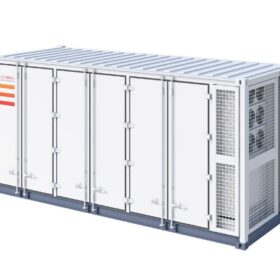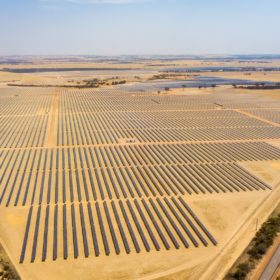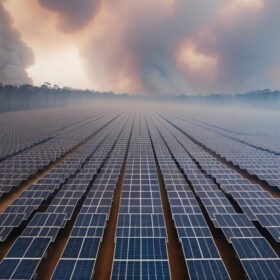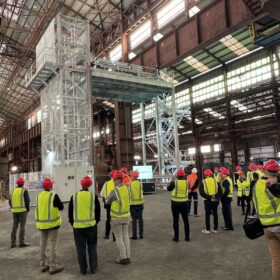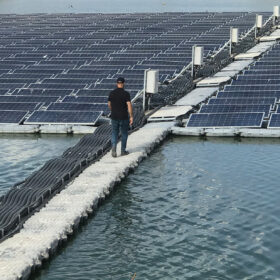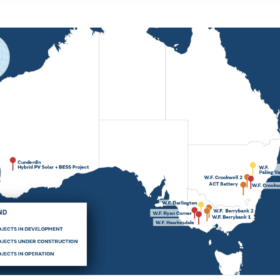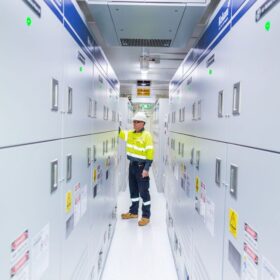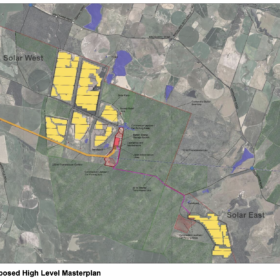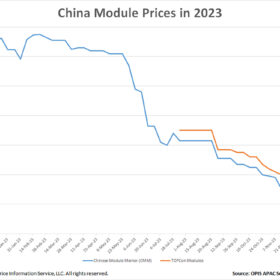Canadian Solar launches new grid-scale battery
Canadian Solar says its new SolBank 3.0 grid-scale battery supports up to 2.35 MW/5 MWh of grid-scale renewable energy storage and dispatch.
Renewable partnership to see 1 GW of projects added to WA’s main grid
Australian clean energy outfit Atmos Renewables is partnering with UK-based Nomad Energy to help develop a renewable energy project pipeline with over 1 GW of capacity in Western Australia by 2030.
Black Summer wildfires impaired solar output, caused financial losses up to $29 million, researchers find
Smoke from wildfires significantly effects solar output, researchers from UNSW have found. Specifically, Australia’s Black Summer in 2019 – 2020 caused energy losses from residential and utility PV systems estimated between 175 to 35 GWh, equating to a worst-case financial loss of around $6.1 to $29 million.
Wollongong startup inks deal with local miner to examine deploying gravity storage in 8 disused mine shafts
Startup Green Gravity has signed a deal with mining company Wollongong Resources to study the application of gravitational energy storage technology at up to eight mining sites in New South Wales.
Australian firm developing 700 MW floating solar, 1.5 GWh battery, in Sri Lanka supported by government PPA
Victorian company United Solar Group, which is developing a floating 700 MW solar and 1.5 GWh battery project at the Poonakary Lake in Kilinochchi, Sri Lanka, has had a Power Purchase Agreement approved by the Sri Lankan cabinet.
NSW solar farm approved with ‘strict’ conditions following community outcry
The NSW Independent Planning Commission on Monday approved the 215 MW Oxley Solar Farm and coupled 50 MW/50 MWh battery in Armidale, enforcing a number of conditions on the project in response to significant community backlash.
$4 billion expected from sale of Naturgy’s 1.3 GW portfolio-holder GPG Australia
Major Australian renewable energy portfolio holder Global Power Generation Australia, jointly owned by Spain’s Naturgy and an arm of the Kuwait Investment Authority, is reportedly going up for auction early next year.
New 300 MW battery proposed by Alinta Energy in WA’s southwest
Western Australian utility Alinta Energy has lodged a plan to build a second 300 MW battery at Wagerup in the state’s southwest. The $500 million (USD 330 million) project would sit adjacent to Alcoa’s alumina refinery and Alinta’s gas and diesel-fired power plant.
Tasmania’s largest project, 288 MW solar farm, 691 MWh battery, approved by local council
Tasmania’s largest hybrid solar proposal, the 288 MW Northern Midlands Solar Farm being developed by startup TasRex, was approved by the Northern Midlands Council on December 11. The agrivoltaic project, which will host a flock of sheep beneath its panels, is seeking to be operational by 2026, and includes a 346 MW / 691 MWh battery.
China module prices slide to new lows, manufacturers cut production
In a new weekly update for pv magazine, OPIS, a Dow Jones company, provides a quick look at the main price trends in the global PV industry.
